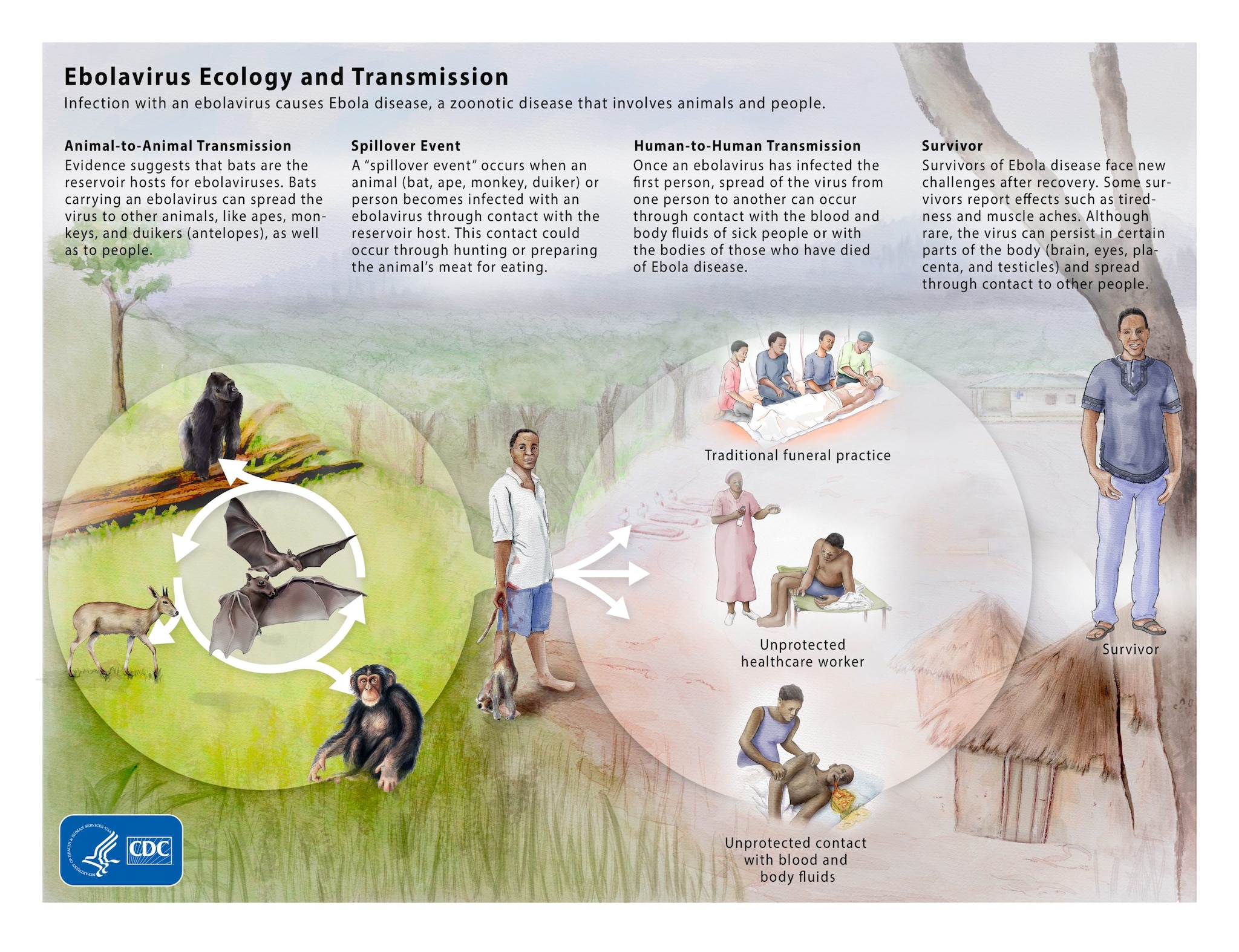Key points
- People and animals, including primates, can become infected with a virus that causes Ebola disease from an animal that carries it.
- People can also get Ebola disease through contact with the body fluids of an infected person or contaminated objects.
- Even after someone recovers from Ebola disease, the virus can remain in areas of the body that are shielded from the immune system.

How it spreads
Between animals
Scientists believe African fruit bats are involved in the spread of orthoebolaviruses. These fruit bats may be the source of the virus.
Infected animals can spread the virus to other animals through contact with infected body fluids or items contaminated by these fluids.
Did you know?
Between people
After an initial spillover event, the virus can spread from person to person. A person becomes infected when their broken skin or mucous membranes in the eyes, nose, or mouth come in contact with:
- Blood or body fluids from a person who is sick or has died from Ebola disease. Body fluids include urine, saliva, sweat, feces, vomit, breast milk, and amniotic fluid.
- Objects contaminated with body fluids from a person who is sick or has died from Ebola disease. This can include clothes, bedding, needles, and medical equipment.
- Infected animals, like bats, primates, or forest antelopes
- These viruses may spread through hunting, handling, or eating infected animals.
- These viruses may spread through hunting, handling, or eating infected animals.
- Semen from a person who recovered from Ebola disease. This can happen through oral, vaginal, or anal sex.
- There is no evidence that orthoebolaviruses spread through contact with vaginal fluids from someone who has had Ebola disease.
- There is no evidence that orthoebolaviruses spread through contact with vaginal fluids from someone who has had Ebola disease.
Fact

When transmission is possible
People sick with Ebola disease can spread the virus to others when they start having symptoms.
Some Ebola survivors still carry the virus
Advances in treatment mean more people are surviving Ebola disease. Sometimes people who survive Ebola disease can spread the virus even after their symptoms go away. This happens when the virus remains in certain parts of the body that are shielded from the immune system.
For example, the virus can remain in semen even after someone recovers. Whether the virus is present in these body parts and or for how long varies by survivor.
What we're still learning
Some people who survive Ebola disease may develop antibodies that can last 10 years or longer. This may provide some protection from the species of orthoebolavirus that made them sick. Scientists don't know if survivors are immune for life, or if they can become infected with a different species of orthoebolavirus.
Scientists continue to study the long-term effects of infection. They are learning more about why the virus persists in some survivors so they can give them better treatment and care.
